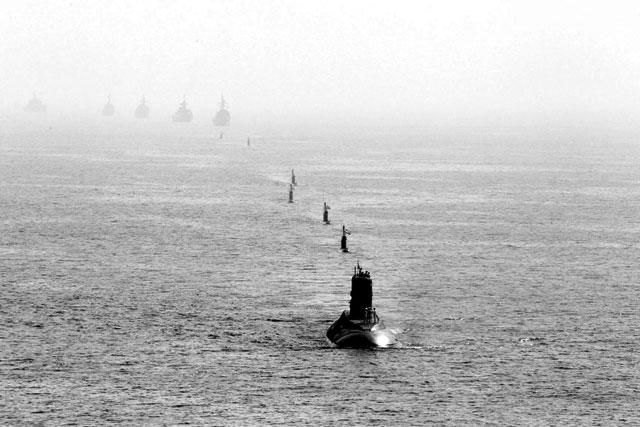You are here
Iran plans to up gasoline imports by March 2015
By Agencies - Mar 27,2014 - Last updated at Mar 27,2014
ANKARA — Iran aims to increase its gasoline imports over the next year, a senior Iranian oil official said on Thursday, as the country has stopped using domestic petrochemical plants to produce the fuel.
Imports are a sensitive subject for energy-rich Iran as they have been a target for US sanctions aimed at persuading Tehran to curb its nuclear activities.
"Iran's fuel imports will surely increase this [Iranian] year," said the senior official, who asked not to be named.
The Iranian year started on March 21.
He refused to reveal the amount or the possible suppliers, but media reports suggest that the import of gasoline will be around 11 million litres.
"Iran will triple gasoline imports in the next Iranian calendar year," Iran's semi-official Mehr news agency quoted the head of the National Iranian Oil Products Distribution Company, Mostafa Kashkouli, as saying on March 4. "It will be around 11 million litres."
However, Iran's Oil Minister Bijan Zanganeh said in September that Iran will import several million litres a day of gasoline to fill the gap between domestic supply and consumption, according to the oil ministry's SHANA website.
Iran has been trying to side-step sanctions on its oil industry by becoming self-sufficient in gasoline production as it produces only 60 per cent of its domestic gasoline demand and imports the remaining 40 per cent from friendly powers.
Iran lacks refining capacity — in part due to a lack of foreign investment — forcing it to import 40 per cent of its domestic gasoline demand.
US-led sanctions on foreign companies that help to supply fuel to Iran have scared off Iran's regular gasoline suppliers, hitting what is seen as the Islamic Republic's Achilles' heel, its lack of refining capacity.
The National Iranian Oil Co.'s director of international affairs in 2010, Ali Asghar Arshi, said Iran had become self-sufficient in producing gasoline and also other top oil ministry officials were quoted by Iranian media as saying that "Iran won't have to rely on imports anymore".
Many analysts were sceptical, saying it was part of the country's "political and psychological" propaganda to cope with sanctions.
Iran's plan to increase imports follows an interim deal agreed in November with world powers under which Tehran has shelved higher-grade uranium enrichment and obtained modest relief from punitive sanctions in return. The interim accord went into effect on January 20.
Alarmed over high pollution levels, Hassan Rouhani's government has repeatedly said it wants to halt production of gasoline from petrochemical plants, which started in 2010.
Iran and major powers are seeking a final settlement by a July deadline under which the West wants Iran to significantly scale back its nuclear programme.
Separately, the International Monetary Fund (IMF) said recently that Iran's economy faces deep structural weaknesses as intensified nuclear sanctions have added to other domestic challenges to the government.
In its first review of the Iranian economy in nearly three years, the IMF said the country needs to respond with a "prompt and vigorous" reform programme to prevent further deterioration.
A combination of shocks, including the start of subsidy reforms, poorly funded social programs, and the intensification of trade and financial sanctions, had "weakened the economy", the IMF added.
"Inflation and unemployment are high, while the corporate and banking sectors show signs of weakness," it indicated.
"Iran now stands at a crossroad... The new authorities should embark on a prompt and vigorous implementation of fundamental reforms to the frameworks supporting product, labour, and credit markets," the IMF concluded
Related Articles
DUBAI — Iran said on Saturday it had many options to neutralise the reimposition of US sanctions on its oil exports, the semi-official
TEHRAN — Russia will start constructing two nuclear reactors in Iran next week, as Tehran seeks to reduce its reliance on oil and gas with 2
Iran said it would resist Western pressure to make what it considered to be excessive concessions in nuclear talks that started on Tuesday, highlighting obstacles that could prevent a historic deal being reached by a November 24 deadline.


















